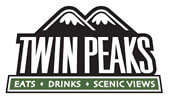Think Beyond the Boundaries
 The summer between fourth and fifth grades, Andy Andrews writes in his new book The Bottom of the Pool, he and his friends spent most of their time at a local pool, where they invented a game called Dolphin. The object: To see who could propel himself highest above the surface, the way dolphins do.
The summer between fourth and fifth grades, Andy Andrews writes in his new book The Bottom of the Pool, he and his friends spent most of their time at a local pool, where they invented a game called Dolphin. The object: To see who could propel himself highest above the surface, the way dolphins do.
All the kids did this in the same way, by pushing upward against the water with their legs, and they all got pretty good at it—until one of them, named Kevin, leapt far higher above the water than anyone else. How? By first diving as deep as he could, launching himself off the bottom of the pool, and using the extra momentum to rocket skyward.
“By changing our understanding and belief about what was possible, Kevin had actually changed the game,” Andrews writes.
In The Bottom of the Pool, he contends that everyone can do likewise—if we’ll allow ourselves to reimagine the (usually self-imposed, and self-limiting) rules of the game. Subtitled Thinking Beyond Your Boundaries to Achieve Extraordinary Results, the book lays out Andrews’ strategies for quieting that nagging inner voice that’s always pointing out that what you really want, or the way you want to get there, is impossible. “Be careful about what you think you know,” he advises, “because you can’t always believe everything you think.”
A speaker and consultant who hosts a popular podcast called “The Professional Noticer,” Andrews coaches pro-athletes, executives, and entrepreneurs on how to find the metaphorical bottom of the pool in order to prevent “the way everyone always does it” from limiting us. “I don’t try to tell people how to think,” Andrews says. “Instead, I help them find the strengths they already have.”
Monster recently spoke with Andrews about how to apply his approach to a job search—and to other challenges, like a total career change.
Q. How do your ideas apply to interviewing for a job?
A. Most people never go to the bottom of the pool in an interview. That is, they rehearse answers to the usual questions without thinking much about the real reasons someone gets hired and someone else doesn’t. It’s too easy to let the whole conversation revolve around your experience, your credentials, and so on. But, by the time you’re sitting in that seat, the person interviewing you has looked at your resume. He or she already knows you’re technically qualified, so it’s not about that.
What you need to do is, research your interviewer online beforehand and find a real personal connection—not just something you have in common that you can mention in passing, but something that’s important to both of you. It has to be sincere. Convince them that you are someone they want to be around.
Q. Communicating well is a skill most employers now say they can’t find enough of. How do you get better at it?
A. I’ve always liked Stephen Covey’s quote, “Seek first to understand, then to be understood.” The heart of communication is listening. For example, one of the toughest challenges people face at work is delivering constructive criticism. To do that effectively, without alienating the other person, you have to slow down and listen.
Ask a lot of questions. Why is he or she doing things a certain way? How does he define the result he’s trying to produce, or how does she see the situation? Demonstrate concern. What is important to this person? Then explain your point of view, and why you might need them to change whatever it is. This takes longer, obviously, than just saying, “Hey, cut it out!” But if you really want someone to change their behavior, you can’t make it all about you.
Q. What about trying to get people to back your ideas, especially in a new job where you may not know anyone yet?
A. Two things: First, anytime you’re trying to “sell” an idea, remember that people are going to be thinking, “What’s in it for me?” So be sure you think of all the ways your idea could benefit your team, your boss, even your whole company. Be ready to explain what’s in it for anyone who will be affected. And second, have lots of facts and figures to support your idea. If you possibly can, estimate how much time or money your idea would save, for instance, or quantify it in some other way. Make your case beyond a reasonable doubt.
Q. Any advice for people who are considering switching to a new career, especially one based on a passion?
A. This is one reason there’s so much in the book about learning to trust your imagination. I’ve coached a number of people who’ve succeeded at launching a whole new enterprise, built on what they love doing. The first step is to ask yourself, if money were no object, what would I choose to do all day? Then—and this is the crucial question—what value does it have for other people? Not who would employ you to do it, but what value does it have, or could it have?
Once you’ve identified the potential value, you’re halfway there. Figure out who would want what you’d be offering, and start reaching out to them. You can start slowly and build on your idea over time. Today, with the Internet, it’s much easier to get the word out, and find the people who see the value in it.
Q. Besides not limiting one’s own thinking with self-imposed “rules,” is there any one thing it takes to create a stellar career?
A. I believe there is, and it goes back to communicating well. A friend of mine, a songwriter, likes to say, “Everything’s already been said.” Everything! So, the trick is to say it in a memorable way that will cut through all the clutter and noise and catch people’s attention. Songwriters have to do that in two and a half minutes!
The bottom-of-the-pool issue there is, if you don’t really understand an issue or an idea, you won’t be able to express it well. So first dig in and think through what you want to say. Then find a new way to say it that is compelling enough to make people—your boss, for example—hear it. Think of this like Twitter, where you gain followers by being intriguing and surprising. Be interesting.
Get out of your head
Do you keep convincing yourself that you’ll never find a job? Stop holding yourself back.Take the first step by joining Monster for free today. As a member, you not only get job alerts emailed right to your inbox, which cuts down on the amount of time you’d spend combing through ads, but you can upload up to five versions of your resume—each tailored to different types of jobs that interest you. Recruiters search Monster every day looking to fill top jobs with qualified candidates, just like you.
Anne Fisher has been writing about career and workplace trends and topics since 1994. She is a columnist for Fortune.com and the author of If My Career’s On the Fast Track, Where Do I Get a Road Map?
Anne Fisher, Monster contributor
Back







